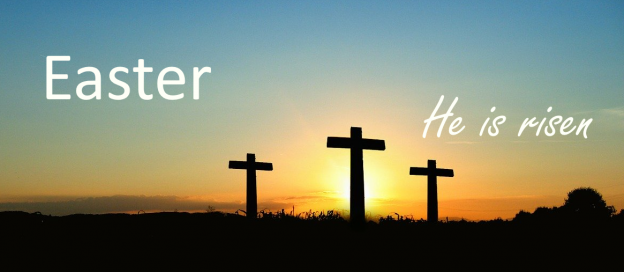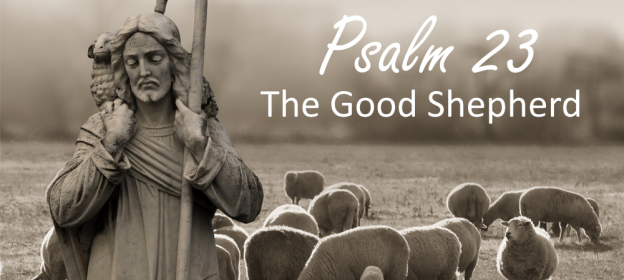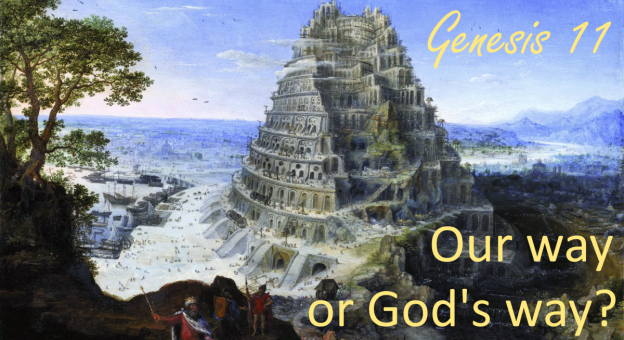He is risen! Happy Easter day! Today we look at the resurrection of Jesus: the central miracle that all of Christianity is based on, including our hope of salvation. What happened, and why should we believe it really happened?
Our passage: Matthew 28:6 & Psalm 22:22-31. Preacher: Ian Bayne (12th April 2020).
Watch the Sermon
The Crucifixion
We gathered on Good Friday to remember the crucifixion. As Jesus died on the cross he uttered the words in Psalm 22:
My God, my God, why have you forsaken me? Why are you so far from saving me, from the words of my groaning?
Psalm 22:1 ESV
After he had died, before the end of the day the soldiers came round to break the legs of those not yet dead in order to make sure the sentence had been carried out. They pierced his side with a spear to confirm and blood and water came out. This gave them proof that he was dead, so they didn’t need to break his legs.
After he died, his body was released to Joseph of Arimathea who placed it in his personal tomb. Aware of what he thought of as a cult following the governor Pontius Pilate set a guard over the tomb.
The Resurrection
The passage we are looking at in Matthew 28 then runs through what happened next:
Now after the Sabbath, toward the dawn of the first day of the week, Mary Magdalene and the other Mary went to see the tomb. [2] And behold, there was a great earthquake, for an angel of the Lord descended from heaven and came and rolled back the stone and sat on it. [3] His appearance was like lightning, and his clothing white as snow. [4] And for fear of him the guards trembled and became like dead men. [5] But the angel said to the women, “Do not be afraid, for I know that you seek Jesus who was crucified. [6] He is not here, for he has risen, as he said. Come, see the place where he lay.
Matthew 28:1-6 ESV
The cross was a means of sentencing people that the Romans didn’t like to death. The resurrection is incredible and miraculous – unlike anything else in history.
Think about it: Christians believe someone was:
- proven to be dead.
- dead for three days – by which time their body would have been decomposing
- rose again.
Why believe Easter happened?
We as Christians, believe this happened, just as He said. This is what Easter is about.
Christians believe this is true for four main reasons.
We believe because of:
1. Who said it
When deciding whether to believe someone we look at the character of who said it. During this time of uncertainty, we are all looking at the source of information in order to avoid being taken in by fake news.
“Just as He said” refers to Jesus. According to scripture, it was impossible for Him to lie. He was fully man and fully God.
Thomas answered him, “My Lord and my God!”
John 20:28
Jesus was the lamb without blemish – He was sinless.
He committed no sin, neither was deceit found in his mouth.
1 Peter 2:22
2. Who he said it to
We recognise his message because of who he gave the message to.
Those who understood the scriptures and were expecting a messiah
There were many around at the time of Jesus who remembered what the Old Testament prophets had foretold:
- Simeon when Jesus is presented at the temple (Luke 2:25-35)
- Anna also at the temple (Luke 2:36-38)
- Zachariah, the father of John the Baptist (Luke 1:67-79)
- John the Baptist (John 1:29-34)
They recognised Jesus from what the Old Testament saints had written about him many years before Jesus came into the world.
Foretold by Scripture
Not everything written in the Old Testament is explicit but there is enough written to paint a clear picture of who Jesus would be and what he would be like, for those who read it carefully. Psalm 22 that we read is a great example of this. If you get time to read, the first half of the psalm runs through the events around the crucifixion; including details such as the dividing of his garments:
For dogs encompass me; a company of evildoers encircles me; they have pierced my hands and feet- [17] I can count all my bones- they stare and gloat over me; [18] they divide my garments among them, and for my clothing they cast lots.
Psalm 22:16-18 ESV
The portion we read in the second half (Psalm 22:22-31) speaks of the goodness of God and an enduring testimony arising from Jesus’s act. Similar acts of obedience and sacrifice have been witnessed throughout the Bible.
- Enoch walked with God and was no more (Gen 5:21-24)
- Abraham offered to sacrifice Isaac (Gen 22 & Hebrews 11:17-19)
- Elijah was taken up to heaven (2 Kings 2)
- Jonah was in the belly of a fish for three days (Jonah 1:17)
Jonah’s experience is highlighted by Jesus as an example of what he had come to do:
But he answered them, “An evil and adulterous generation seeks for a sign, but no sign will be given to it except the sign of the prophet Jonah.
Matthew 12:39 ESV
His enemies
Jesus answered them, “Destroy this temple, and in three days I will raise it up.”
John 2:19 ESV
He had nothing to hide.
His disciples
From that time Jesus began to show his disciples that he must go to Jerusalem and suffer many things from the elders and chief priests and scribes, and be killed, and on the third day be raised.
Matthew 16:21 ESV
Paul repeats the narrative of the resurrection in his letters. There were over 500 witnesses.
For I delivered to you as of first importance what I also received: that Christ died for our sins in accordance with the Scriptures, [4] that he was buried, that he was raised on the third day in accordance with the Scriptures, [5] and that he appeared to Cephas, then to the twelve. [6] Then he appeared to more than five hundred brothers at one time, most of whom are still alive, though some have fallen asleep. [7] Then he appeared to James, then to all the apostles. [8] Last of all, as to one untimely born, he appeared also to me.
1 Corinthians 15:3-8 ESV
3. As convicted by the Holy Spirit
The resurrection is something so profound that God has given us help to understand it.
For this is the covenant that I will make with the house of Israel after those days, declares the LORD: I will put my law within them, and I will write it on their hearts. And I will be their God, and they shall be my people.
Jeremiah 31:33 ESV
The crucifixion is like a burning bush: evidence of an event too important to ignore. We have to look into it and see for ourselves what has happened.
And Moses said, “I will turn aside to see this great sight, why the bush is not burned.”
Exodus 3:3 ESV
4. We have personal experience of fellowship and communion with the risen saviour
In the days following the resurrection, Jesus’s disciples physically experienced His presence as he ate and drank with them. His disciple Thomas famously doubted:
Now Thomas, one of the twelve, called the Twin, was not with them when Jesus came. [25] So the other disciples told him, “We have seen the Lord.” But he said to them, “Unless I see in his hands the mark of the nails, and place my finger into the mark of the nails, and place my hand into his side, I will never believe.”
John 20:24-25 ESV
Jesus appears to Thomas specifically, and Thomas confirms that it is Him.
While we can’t have a physical relationship, Jesus is alive and Christians have an active relationship with him: sustaining and protecting the church. We see his sovereign control through answered prayer, world events and in creation itself.
Easter is still remembered
The book of Revelation speaks of a vision of the end times in the form of apocalyptic literature. In chapter 5 Jesus is depicted as a lamb.
And between the throne and the four living creatures and among the elders I saw a Lamb standing, as though it had been slain, with seven horns and with seven eyes, which are the seven spirits of God sent out into all the earth.
Revelation 5:6 ESV
Note that the lamb is standing as if it had been slain. It’s a striking figure to consider.
As you may remember from previous sermons I was a sheep farmer producing prime lamb for market. Speaking from experience, there is not one lamb who has stood after they have been slain.
Jesus was slain, but He was raised. Revelation 5 speaks of the lamb being sovereign over the land today, powerful and worshipped by all of creation. Today we have fellowship with a living saviour who was slain for us so that we may have a relationship with him.
What will you remember this Easter?
Part of my family’s Easter tradition was going with my father to visit my grandmother’s grave. We would give thanks to a mother who had prayed for him and nursed him during his early years of suffering when he couldn’t walk. Easter Sunday was his first day walking after suffering from Polio and we would give thanks that he was healed.
40 years ago I met Glenys at a Christian camp over Easter. While our wedding anniversary is later in the year, we think of Easter as our actual anniversary.
We may remember 2020 as the Easter of lockdown so that we don’t spread covid-19.
But whether a family event, the beginning of a relationship, or something like we’re going through now: it will be forgotten.
An event happened 2000 years ago that has not been forgotten. Christ has risen just as He said. In 2000 more years I can guarantee, people will still remember.
This is a savour who has risen from the dead and offers us a relationship with our God and eternal life. He cares for us so much that He died for us. He is a saviour we can trust in.
Resources
Questions? Please contact us. Inspired? Come and worship with us on Sundays.









